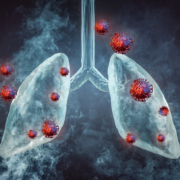Brain-Related Symptoms of COVID-19 in Frail, Older Adults
Please note: this post serves an addendum to the previous blog, Accelerated Frailty and COVID-19. Colleagues from Johns Hopkins University recently published an important paper (Bullen et al., 2020) the demonstrated that COVID-19 can infect brain cells. The study points out that neurons also have the ACE 2 receptor on their surface, necessary to transfer COVID-19 into a cell.
These findings provide a potentially important explanation for some of the more common brain-related symptoms of COVID-19 infections that we see in frail, older adults. For example, several of the patients that I treated on the COVID-19 inpatient unit back in April had florid delirium and visual hallucinations with minimal signs of COVID pneumonia during the first few days of their hospitalization.
Although the cytokine storm could be a contributor to these symptoms, direct infection of brain cells might also be contributing to abnormal central nervous system discharges, consistent with hallucinations and delirium. In addition, it is possible that central mechanisms that drive thirst and hunger could be directly impacted by the virus, leading to the marked anorexia and adipsia that I described in the earlier blog.
Reference: Bullen CK, Hogberg HT, Bahadirli-Talbott A, et al. Infectability of human BrainSphere neurons suggests neurotropism of SARS-CoV-2 [published online ahead of print, 2020 Jun 26]. ALTEX. 2020;10.14573/altex.2006111. doi:10.14573/altex.2006111



